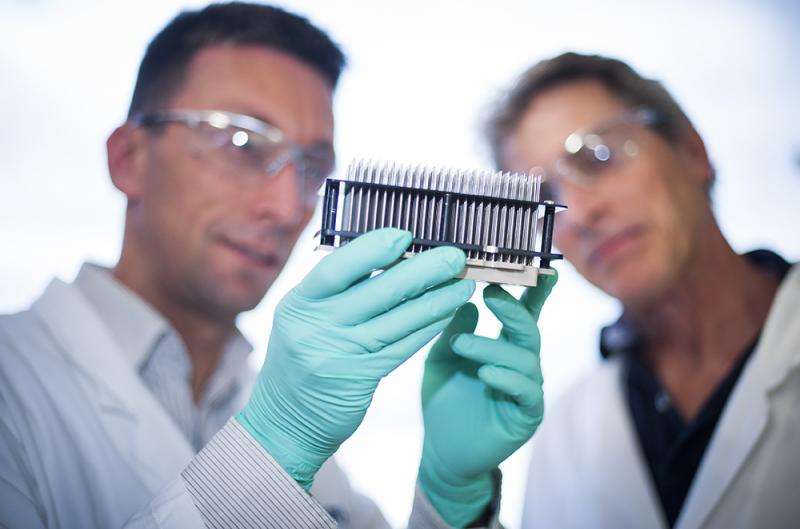Cancer research collaboration leads to landmark licensing agreement

Walter and Eliza Hall Institute research has underpinned the development of a new class of drugs that are the subject of one of the largest biotech licensing deals to arise from Australian research.
The rights to research and clinical development of PRMT5 inhibitors, drugs that may have applications for treating cancer and certain blood disorders, have been licensed to global healthcare company MSD, known as Merck in North America.
The PRMT5 inhibitors have been developed over the past five years by the Melbourne-based Cancer Therapeutics Cooperative Research Centre (CTx), an international network of medical research institutes, commercial entities and academic partners including the Walter and Eliza Hall Institute and Monash University.
PRMT5 is a protein that controls how genes are switched on or off in cells. High levels of PRMT5 are found in human cancers, including certain blood cancers, and are associated with a poor response to treatment.
Walter and Eliza Hall Institute researchers Associate Professor Ian Street and Dr Hendrik Falk, working with Professor Stephen Jane of Monash University and Alfred Health, led the development of new agents that inhibit PRMT5. The institute's high throughput screening and medicinal chemistry facilities were essential to the early successes of the research program.
Working with researchers across the CTx partnership, Associate Professor Street and Dr Falk showed that the new PRMT5 inhibitors may be effective in treating cancer and blood disorders including beta thalassemia and sickle cell anaemia.
Associate Professor Street, who is the chief scientific officer of CTx, said the licensing deal with MSD was an important milestone for CTx and the Australian biotech sector. "An Australian research consortium has been able to take a laboratory discovery through to a point that it can be licensed to a global healthcare company," he said. "As well as being an exciting development for healthcare, it has also put CTx, and Australian medical research, on the global biotech landscape."
The licensing agreement was made by CTx's commercialisation partner, Cancer Research Technology, and includes an initial payment of $US15 million, future milestone payments and royalties. CTx and its Australian research partners will receive the majority of the revenue. MSD will also support further research by CTx into new treatments for blood disorders.

















